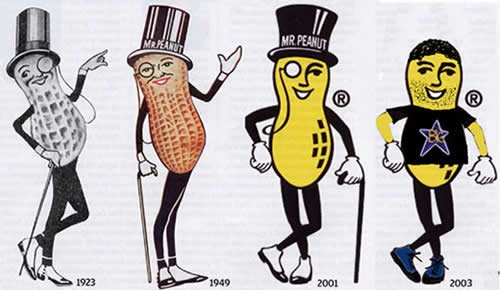
Here’s a little gedankenexperiment I’d like to try out on you, Gentle Reader:
I propose that it be called “Republican Marketing” instead of “Pinko Marketing”.
“Okay, Accordion Guy, now you’ve really lost it,” you might reply. I ask that you bear with me for a moment as I introduce you to Chuck DeFeo.
I met Chuck and saw him speak at the 2004 Internet + Society conference (whose subtitle was “Votes, Bits and Bites”) at Harvard, which Wendy coordinated. He participated in a panel in which the 2004 elections — which had taken place only the month prior — were the topic of discussion. At the time, Chuck held the position of eCampaign manager of the Bush-Cheney 2004 campaign, and he now works at Salem Communications, a media group of talk radio stations and online media such as sites like the Townhall.com, a favourite in the conservative blogosphere.
Now let me toss you a mind bomb: Chuck is a master of so-called “Pinko Marketing”. He understood it better than Zack Exley, his counterpart at the Democratic Party.
The Republican Online Campaign: “Pinko Marketing” Well Before the Term Was Coined
Chuck’s strategy was simple: get people talking to each other and get volunteers for the Republican campaign to recruit other volunteers. The idea was to have the message delivered by the campaign’s biggest fans rather than campaign headquarters. He organized events like “Walk the Vote”, “Neighbour to Neighbour” and “Parties for the President”, which gathered people who lived in the same neighbourhood but didn’t necessarily know each other that well. These events were held more often in homes rather than public places, as Meetup events are.
He said that these gatherings proved to be more powerful than a TV or print ad. He said that there was nothing so convincing as someone in your neighbourhood promoting by saying “I live near you, our kids go to the same school, I share your values.”. He also said that these events had an additional benefit: “You know your neighbour now.”
The Democratic Online Campaign: “A Disaster”
The Democratic online campaign was, by Zack Exley’s own admission, “a disaster”. There was no plan, and there were no trained volunteers. “It was as if they did not see an election coming”, he said.
The closest they came to engaging the constituents was to solicit stories from people about how the Bush government affected them. 100,000 submissions were received, and they were stored in a database and made available online. In the end, although they were using testimonials from the people, their campaign was still a top-down one, with all the messages coming from Democratic campaign headquarters.
At the panel, Zack said that the Right is beating Left at what used to be the Left’s game: grassroots campaigning. The Left thinks that grassroots politics is “doing neat stuff”, but in fact, it’s still talking to people. It fundamentally comes down to a cultural problem: the Left don’t have trust in ordinary people. “We don’t know how to talk to ordinary Americans,” he said, adding “I agree with Chuck — our best campaigners aren’t paid staff people, but real people!”
Republican Marketing: Trusting the People
At one point in the panel discussion, an audience member asked about what role fear played in the 2004 presidential campaign, remarking that President Bush said the country would be in great danger if he were not re-elected.
Chuck’s response was “The American electorate is incredibly samrt and know how to form their opinions.” He said that voters are able to decide for themselves from the different sources of information, capping it with “I think we are the better choice”.
Zack then responded in a surprising way. “What Chuck said was very important,” he said. “When was the last time you heard a Democrat say that the electorate was smart? Did they, the last time we won, say ‘this country’s dumb, I’m moving to Canada?'”
My Conclusion
DeFeo’s online campaign, was — even by the admission of his opponents — a far superior campaign. It is a textbook example of “Pinko Marketing”, having embraced its five principles (see this entry for the principles) and could be used as a prime example of a Pinko success story. As such, it is more directly applicable to marketing than Marx and Engels (whose marketing typically boils down to either tanks or scruffy social maladroits selling the Socialist Worker on street corners).
Hence my modest proposal: Let’s call it “Republican Marketing”! (Or hey, maybe “Bush Marketing!”)
(I’ve donned my flame-proof suit. Fire away in the comments!)
 We haven’t sparred in quite some time, so her response to my response to her “Food Allergies are a Character Flaw” post feels like old times. Welcome back to the Monkey Knife Fight, Kathy!
We haven’t sparred in quite some time, so her response to my response to her “Food Allergies are a Character Flaw” post feels like old times. Welcome back to the Monkey Knife Fight, Kathy!






 For a comic that was smarter than most at the time, The X-Men comics featured a team of supervillains with a painfully stoooopid name:
For a comic that was smarter than most at the time, The X-Men comics featured a team of supervillains with a painfully stoooopid name: 